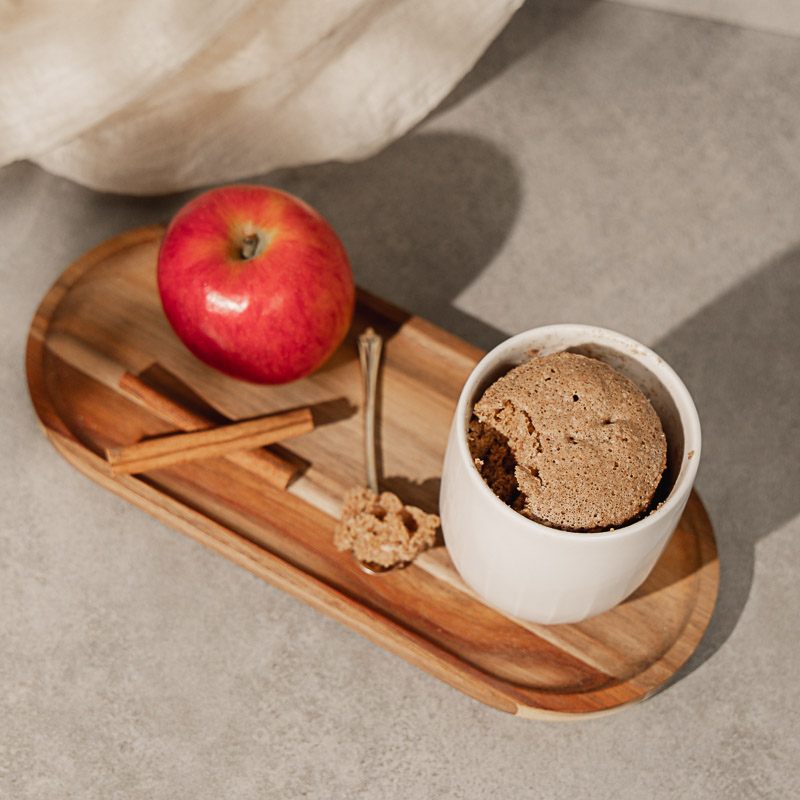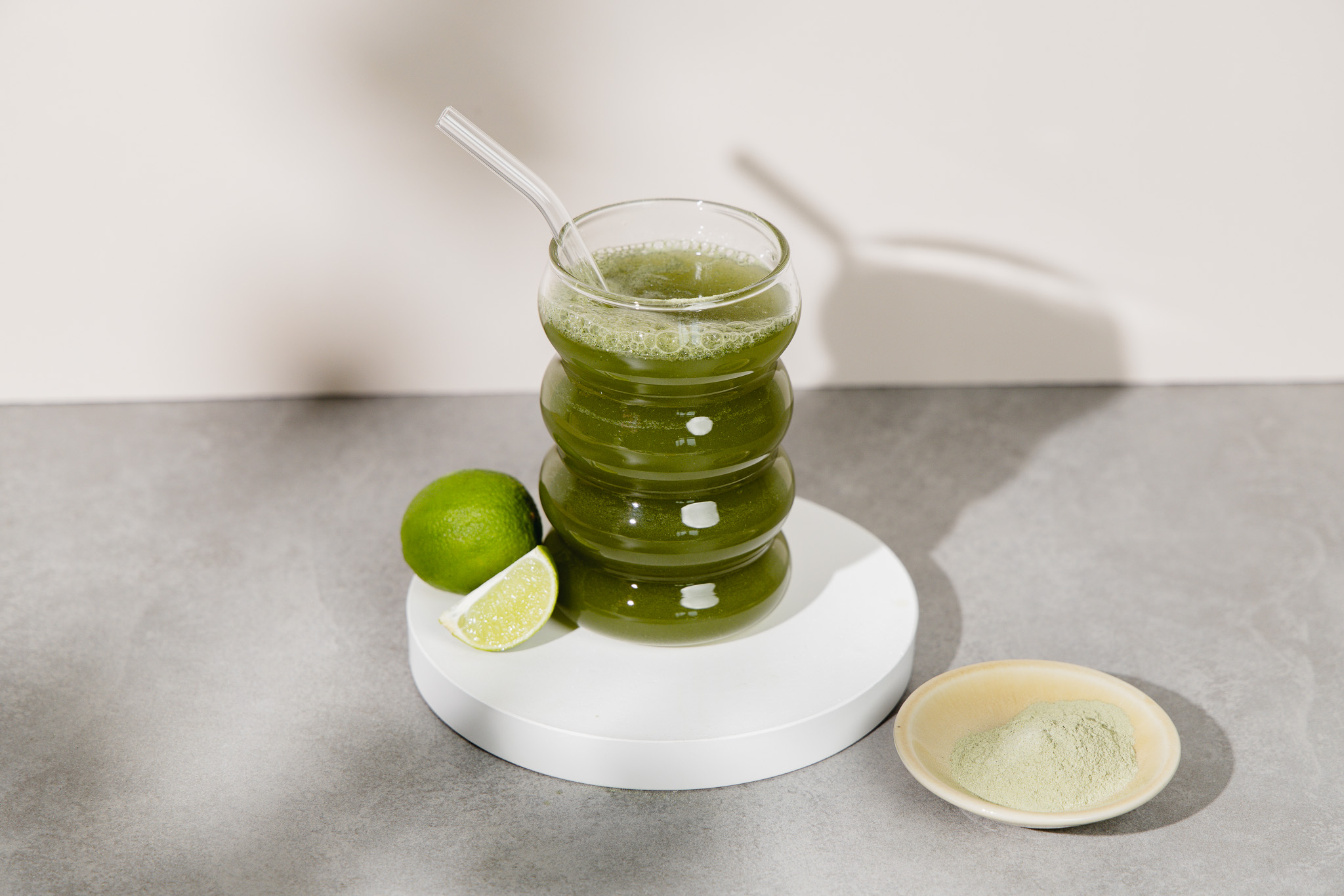Newsletter |
Lose weight successfully
How can it work?
The topics of weight management and metabolism are currently on everyone's lips again due to the hype surrounding the GLP-1 drugs known as weight loss injections. But dietary supplements can support weight loss, which is why in this issue of our newsletter we take a look at inulin shakes, glucomannan sticks and more.
Metabolism and weight
Metabolism plays a crucial role when it comes to weight. Metabolism describes the biochemical processes in the cells in which energy is obtained and substances are broken down, converted or built up. It determines how quickly calories are burned and how efficiently nutrients are utilized. A well-functioning, active metabolism is often referred to colloquially as a (good) metabolic balance. A sluggish metabolism makes it difficult to maintain weight. The following factors influence the metabolism:
Diet: a balanced diet rich in fiber has a positive influence on the metabolism.
Exercise: Regular exercise boosts the metabolism and promotes muscle building.
Age: The metabolism slows down with increasing age.
Gender: In most cases, men have more muscle mass than women and therefore burn more calories.
Diseases: Certain metabolic diseases (e.g. hypothyroidism) can slow down the metabolism.

No unnecessary ballast
Focus on dietary fiber
Switching to a high-fiber diet can boost the metabolism and accelerate weight loss. Dietary fiber swells during digestion, increasing the volume of food and thus the feeling of satiety. In addition, fiber has the lowest energy content compared to other macronutrients at 2 kcal/g. In comparison: carbohydrates and proteins account for 4 kcal/g and fats for a whopping 9 kcal/g. Switching to a diet richer in fiber can therefore help to reduce calorie intake. Fibre is also said to have a positive effect on digestion and counteract cravings by stabilizing blood sugar levels.
Inulin shakes, for example, are a good choice to specifically support a high-fiber diet. In addition to inulin, it is recommended to add digestive enzymes, vitamins and minerals to such a shake. Classic fruity flavors such as raspberry as well as more unusual flavors such as apple and spinach are suitable.
The water-binding champion: glucomannan
Another plant-based raw material often used for weight loss is glucomannan from the konjac root. Used in Asian cuisine for over 1500 years (e.g. shirataki noodles), this raw material is also suitable for use in capsules or sticks. Like inulin, it is a dietary fiber. Of all plant substances, glucomannan has the greatest water-binding capacity. Therefore, when consuming products containing glucomannan, you should always make sure you drink enough liquid and they must also be labeled accordingly. A major advantage of using glucomannan in slimming products is that the active ingredient has the following EFSA-approved health claims:
Glucomannan contributes to the maintenance of normal blood cholesterol levels.
Glucomannan contributes to weight loss as part of a low-calorie diet.
A classic food supplement is glucomannan capsules, which are best taken half an hour before a meal. If you want to combine the intake of glucomannan with a delicious flavor such as blueberry-coconut or elderberry-lemon, glucomannan sticks are a good option, which can also contain other valuable ingredients such as vitamins and minerals.


Weight management and metabolic products
What are the classics?
Speaking of classics: in addition to food supplements, we also produce other powdered foods such as meal replacement products. In accordance with Regulation (EU) No. 432/2012, these have certain compositional requirements, compliance with which should ensure that you either maintain or reduce your weight depending on how many meals a day are replaced. For people who want to lose weight but also build muscle, our range of protein puddings, pancakes and waffles is also worth a look.
Whether classic flavours or unusual varieties, we will be happy to work with you to develop and optimize your desired product.
The transport helper for fatty acids: L-carnitine
L-carnitine is a popular ingredient for metabolic products. It is a natural, endogenous compound that is important for the transport of fatty acids into the mitochondria and thus for the conversion of fat into energy. The human body is capable of producing L-carnitine as well as absorbing it through food - mainly in the form of animal products. The supplementation of L-carnitine can therefore be of interest to vegetarians and vegans as well as people with an increased energy requirement.

Spirulina: The green helper from the sea
There are also great product concepts and raw materials for metabolism and weight loss in the tablet form, where spirulina is often used. But the raw material obtained from the blue-green algae also fits perfectly into green shakes. Studies have shown that the raw material reduces the levels of total cholesterol, LDL cholesterol and triglycerides and increases the HDL cholesterol level. HDL cholesterol transports cholesterol from the arteries and cells to the liver, where it is broken down. A high HDL level should therefore be protective for the blood vessels and have a positive long-term effect on weight loss.
Vitamins and minerals on the scales
The mineral calcium should also be taken into consideration. This has the approved health claim "Calcium contributes to normal energy metabolism" and is therefore well suited for products that focus on metabolic balance. The granules of calcium carbonate, for example, are a raw material that is very easy to tablet, both for a mono-product with calcium and for product concepts in which the tablet is usefully supplemented with vitamins such as niacin, pantothenic acid, riboflavin or vitamin B6.
💡Tip: Due to the lower food intake during the weight loss process, e.g. as part of a diet, you usually also absorb fewer nutrients. Supplementing vitamins and minerals, e.g. in the form of multivitamin capsules, tablets or powders, can therefore be useful.

Due to the weight loss injections mentioned at the beginning of this article, the keyword GLP-1 is currently on everyone's lips - increasingly also in connection with dietary supplements. But what exactly is GLP-1?
GLP-1 (glucagon-like peptide-1) is a hormone produced naturally in the body that plays a central role in metabolism. It is released in the intestine after food intake and plays a key role in regulating blood sugar levels and appetite. GLP-1 increases the release of insulin, inhibits the production of glucagon and ensures that you feel full more quickly.
Supplements that are intended to stimulate or support the body's own GLP-1 production
These are often herbal ingredients such as bitter substances, fiber or certain plant extracts, which, according to suppliers, could increase GLP-1 levels or promote its release.
So far, however, there is a lack of reliable scientific studies that clearly demonstrate such an effect in humans.
Supplements for support during GLP-1-based weight loss
When losing weight with GLP-1, nutrient deficiencies can occur due to the reduced food intake. Food supplements can be useful here to ensure the supply of vitamins, minerals or proteins. Products for intestinal health (e.g. pre- and probiotics) or to support the energy metabolism can also play an accompanying role. These supplements are not intended to have a direct effect on GLP-1, but have an accompanying effect.
Legal classification
A reference to GLP-1 on food supplements can be considered misleading and disease-related, as consumers could assume a comparable effect to that of prescription drugs. A direct reference to a "GLP-1 effect" in connection with food supplements is therefore not permissible in our opinion, as this can quickly be classified as disease-related advertising.
For the plant substances and other ingredients used in food supplements, there is also a lack of scientifically proven evidence of a direct influence on GLP-1. Advertising with the keyword GLP-1 - especially on packaging or in product texts - is therefore clearly not recommended.


